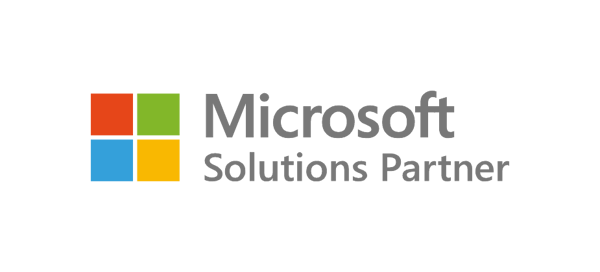- Legacy networks were inherited
via acquisition of facilities
- A mix of networking equipment from different vendors defies easy management
- Instability in the networks led to occasional downtime and business interruption
- VPNs provide site-to-site connections to all facilities
- Allied Telesis switches support internal networking within each manufacturing plant
- AMF centralized remote management unifies the network
- Increased network stability and performance support business goals and future growth
Most networking vendors provide similar levels of performance, but it is the other criteria of ease of management, reliability and total cost of ownership where Allied Telesis really shines. – Vahur Jõesalu, Managing Director at BRS Networks Baltic
HANZA Group is Northern Europe’s most innovative Complete Manufacturing Services (CMS) provider. The company brings together a diverse range of manufacturing technologies and capabilities in its local facilities in order to minimize costs, shorten lead times and make processes more environmentally friendly. Leading companies such as ABB, Epiroc, Getinge, Oerlikon, Saab and Siemens rely on HANZA’s advisory services and production prowess to bring high-quality products to market.
Founded in Sweden in 2008, HANZA is on a growth trajectory aided by both organic expansion and
acquisitions. Manufacturing companies based in Finland and Germany are among the most recent
acquisitions. Today HANZA Group operates over a dozen plants in Sweden, Germany, Finland, Estonia,
Poland, the Czech Republic and China.
Onboarding newly acquired facilities leads to networking challenges
HANZA is developing manufacturing clusters and undertaking the extensive integration of all its facilities.
A key element of enabling the plants to operate cohesively is the underlying network. Communications
among the different facilities as well as operations within each location are dependent upon a reliable and
robust network. This has been a challenge with the legacy networks inherited through the acquisitions.
These legacy networks include disparate equipment and technologies from numerous vendors, making it
nearly impossible to have standardized processes for consistent connectivity and network management
and maintenance. Some of the factories contained an infrastructure of old cabling and networking
equipment. This creates complexity and can lead to higher costs for IT support. What’s more, the legacy
networks can’t be properly segmented for security, putting the business at risk of harmful cyber-attacks.
Criteria for a new network
In 2019, HANZA outsourced part of its IT operations to BRS Networks Baltics, where Vahur Jõesalu is the managing director. Jõesalu says his company proposed to build a new centrally managed IT network and operate it as a managed service provider.
BRS Networks established several criteria for the new network. The company planned for site-to-site connectivity to be provided via a VPN infrastructure, with assurances that if a single location goes offline, it doesn’t affect the rest of the network. Due to cost constraints, the networking within each facility would be provided using regular enterprise switches rather than ruggedized industrial quality switches. BRS Networks decided it would deal with environmental conditions in other ways.
Centralized management of the entire network was a top consideration so that every HANZA location
could be managed remotely and consistently. In addition, network automation was needed for activities
such as configuration backups and firmware updates. Automating many manual tasks can reduce errors
and save time.
Allied Telesis beats the competition with its management capabilities
After investigating potential solutions, BRS Networks narrowed its vendor selection to Allied Telesis and two other leading networking companies. “We have experience with all three vendors,” said Jõesalu. “They all make good switches, so we based our decision on overall ease of management, reliability, total cost, and performance.”
The site-to-site VPN network is built using top-tier security vendor’s firewalls, which were already in place in each HANZA facility. BRS Networks made the decision to continue utilizing this existing firewall equipment as a cost-saving measure. Then it became a matter of choosing the internal switches to support local networking within each manufacturing facility.
One of the brands under consideration could be managed via the existing firewalls. However, the number of switches required per location exceeded the firewalls’ capacity to manage them. In essence, using this brand of switches would force replacement of the firewalls with larger devices—thus, defeating the intent to reuse the existing firewalls, and driving up costs.
A second vendor’s switches were ruled out due to stability and performance issues when faced with a high load. While the switches work well in a less demanding environment, they weren’t suitable for HANZA’s enterprise needs.
Allied Telesis was the clear winner for the switched networks inside the facilities based on several
characteristics, including outstanding features for network resiliency and centralized management.
“In terms of our main selection criteria, we find that most networking vendors provide similar levels of
performance, but it is the other criteria of ease of management, reliability and total cost of ownership
where Allied Telesis really shines,” says Jõesalu.
We have a relationship with our Allied Telesis counterparts where we can just pick up the phone and call them. With so many other vendors, we’d have to submit a support ticket and wait for a response. Sometimes this can take days. Allied Telesis’ responsiveness helps us serve our customers like HANZA so much better. – Vahur Jõesalu, Managing Director at BRS Networks Baltic
A winning combination: stability, resiliency and easy management
In the new configuration, each HANZA location is controlled internally by multiple network switches. To
ensure resiliency and uptime in the network, BRS Networks utilizes Allied Telesis’ Virtual Chassis Stacking
(VCStack™) technology with Link Aggregation. With this approach, all the switches can be connected to
form a single virtual switch that can survive a link or equipment failure. “We haven’t had a single switch
failure yet,” says Jõesalu, “but we have the technology in place to quickly adapt to help prevent business
disruption in the event of equipment failure.”
A second big differentiator that made Allied Telesis the obvious choice is its central management
platform, the Allied Telesis Autonomous Management Framework™ (AMF). AMF reduces the time and
skill required to maintain the network. Powerful features like centralized management, auto-backup,
auto-upgrade, auto-provisioning, and auto-recovery enable plug-and-play networking and zero-touch
management.
Within AMF, there is a single console that BRS Networks uses to manage just under 200 Allied Telesis
x series switches throughout the HANZA locations. “We have a central AMF Cloud installation,” says
Jõesalu. “We use AMF for several other customers too, with all of them centrally managed from our AMF
Cloud platform. From the AMF Cloud, dedicated VPN tunnels run to each customer, allowing secure and
reliable management of the networks.”
Jõesalu says all the Allied Telesis switches—from the small 8-port to the large 52-port switches—use
the same software, which simplifies management. “AMF is a command line environment. Once we log
into the AMF Controller, we can do everything we need to do from that single console, whether it’s adding
VLANs, backing up the configuration, updating the firmware on the switches, or anything else.”
Many activities are automated to reduce errors and save time. “We can initiate a rolling update of all the
switches from the central console,” says Jõesalu. “Then we set the version of the upgrade and the time to
run the update. We can let it run overnight or whenever the maintenance window is for each site.”
BRS Networks also uses Allied Telesis Vista Manager EX, which is a graphical interface to the AMF. “Vista
Manager allows us to view statistics about the network, and also to do some configuration via a graphical,
web-based interface. It’s more intuitive in some cases,” according to Jõesalu.
He adds that the technical support his company has received from the Allied Telesis Nordics team has
been outstanding. “We have a relationship with our Allied Telesis counterparts where we can just pick up
the phone and call them. With so many other vendors, we’d have to submit a support ticket and wait for a response. Sometimes this can take days. Allied Telesis’ responsiveness helps us serve our customers like
HANZA so much better,” says Jõesalu.
A network ready for the future
HANZA is already seeing the benefits of the new network. “The stability in the network is much better,”
says Jõesalu. “The facilities no longer experience random disconnections or other issues that could bring
the network down. We’re able to make changes in the network without causing business disruption, and
that’s a top priority for HANZA.”
The new network perfectly positions HANZA for future growth, both in terms of new customer
onboardings and acquisition of additional facilities.
About Allied Telesis
For over 30 years, Allied Telesis has been delivering reliable, intelligent connectivity for everything from enterprise organizations to complex, critical infrastructure projects around the globe.
In a world moving toward Smart Cities and the Internet of Things, networks must evolve rapidly to meet new challenges. Allied Telesis smart technologies, such as Allied Telesis Autonomous Management Framework™ (AMF) and Enterprise SDN, ensure that network evolution can keep pace, and deliver efficient and secure solutions for people, organizations, and “things” – both now and into the future.
Allied Telesis is recognized for innovating the way in which services and applications are delivered and managed, resulting in increased value and lower operating costs.
Visit online www.alliedtelesis.com.This story was originally published at www.alliedtelesis.com.



